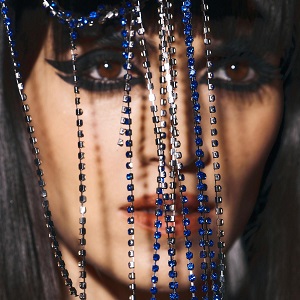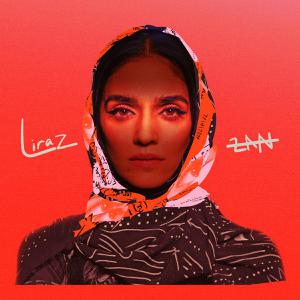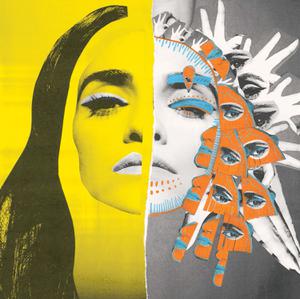|
Warenkorb / Shopping Cart:
Artikel 0,00 €      |

|
|
Suche / Search
|
|
STOPPOK |
|
VORVERKAUF |
|
# |
|
# |
|
|
|
Keep an eye on...
DAMAGED GOODS |
|
ON THE DEcKS |
|
ON THE DECKS |
|
OBS 28 |
|
WIEDER DA! |
|
|
|
----- |
|
SUPER SAMPLER |
|
50s/60s R'n'B |
|
|
|
|
|
GESCHENK |
|
|
|
|
|
|
|
|
|
|

|
|
||||||||||||||||
Eine israelisch-iranische Sängerin, ihre Band stammt aus Tel Aviv, diverse Gastmusiker aus dem Iran. Zu recht hohem Anteil verwendet sie westliche Instrumentierung mit viel E-Gitarre (inkl. Wah-Wah, Fuzz) plus iranische/orientalische Verzierungen/Ergänzungen/Punktierungen (z.B. Saiteninstrumente, akustisch oder elektrisch verstärkt), hinzu kommen immer wieder gern üppige Streicher sowie jede Menge Synthies, spacige wie melodiebetonte, hier mit Bläser-artiger Färbung, dort flirrend-fluoreszierend, häufig 70s-Analog-Style, mal Sitar-ähnliche Klänge. Die Melodik/Harmonik kommt aus ihrer Heimat, die Rhythmik/Grooves aus beiden Kulturen, vornehmlich jedoch westlich orientiert, manchmal ansatzweise funky. Das alles mit Eastern-Rock- oder, vorwiegend, -Pop-Tendenz, zwischendurch tauchen kurzzeitig Erinnerungen an türkische Psyche-angehauchte Bands der 70er oder in einem Fall gar algerischen Rai auf. Dynamische Stücke wie treibende oder schwelgende, seltener langsame oder zeitweise zurückhaltend-geheimnisvoll wirkende (1x ziemlich traurig). Ein paar spannende exzellente Songs stehen einige mir zu „gefällige“ gegenüber, Geschmackssache, ich mag es halt eher pur bis abenteuerlich. (detlev von duhn)
Herstellerinformationen
Glitterbeat Records GmbH
Schlachthofstr. 36a
21079 Hamburg
Deutschland
www.glitterbeat.com
The award-winning Israeli-Persian singer returns with "Roya" (fantasy in Farsi) an exhilarating blend of tradi-modern rhythms and retro-Persian sonics. Recorded in secrecy in Istanbul with her band from Tel Aviv and risk-defying Iranian musicians from Tehran. A musical portal to a place of peace, joy and unfettered freedom. The new third album from award-winning Israeli-Persian singer Liraz is an invitation to dream. Anthems, love ballads, glittery Middle Eastern dance tunes ... A collection of 11 tracks that enrich that signature blend of tradi-modern rhythms and retro-Persian sonics, Roya ("fantasy" in Farsi) is music as a magic portal, an arched gateway to a place of peace, joy and unfettered, chador-waving freedom. Liraz and her Israeli sextet (three women, three men) recorded Roya over ten days in Istanbul, in a basement studio hidden from public view and crackling with creativity. With them, on violin, viola and the tar, the wasp-waisted wooden Iranian lute, were composers and musicians from the Iranian capital, Tehran. The same clutch of anonymous players who previously collaborated with Liraz online, no questions asked, no faces shown, under the radar of Tehran"s secret police, for her feted 2020 album, Zan. Players who"d travelled undercover from Tehran to Istanbul to work with Liraz and producer/multi- instrumentalist Uri Brauner Kinrot in the flesh. "There is a passage connecting our tongue and heart, sustaining the secrets of the world and soul," wrote Rumi, the greatest Sufi mystic and poet in the Persian language, whose prose Liraz treasures. "As long as our tongue is locked the channel is open/the moment our tongue unlocks the passage will close."

LirazCD Roya
12,00 €
|

LirazCD Zan
15,95 €
|

LirazLP Naz
18,00 €
|

LirazCD Naz
15,95 €
|